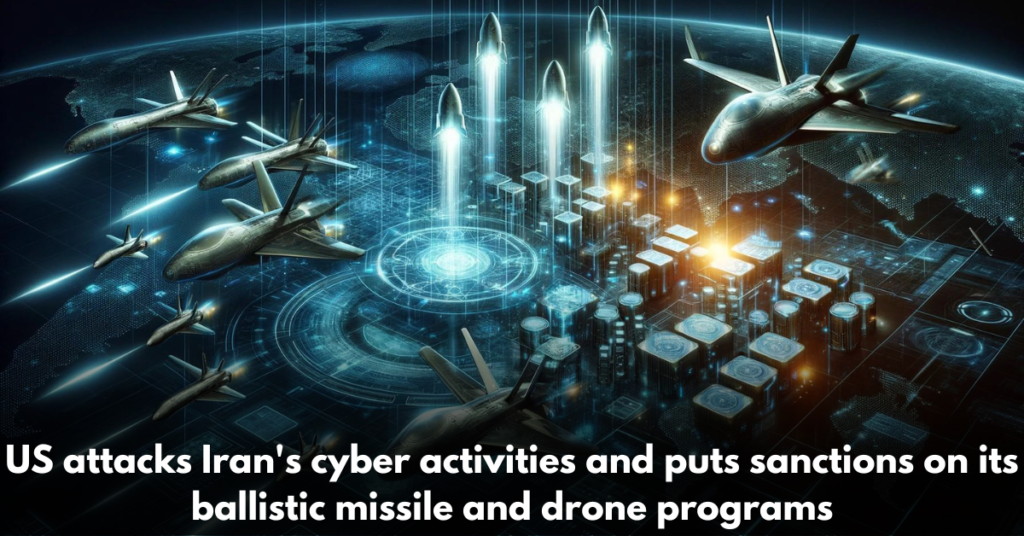US attacks Iran’s cyber activities and puts sanctions on its ballistic missile and drone programs
The United States has imposed sanctions on several entities and individuals linked to Iran’s ballistic missile and drone programs, as well as officials involved in cyber attacks on U.S. infrastructure. The sanctions target four companies based in Iran and Hong Kong, accused of supplying materials and technology to Iran’s military programs. The U.S. believes these sanctions will significantly hinder Iran’s ability to further develop its ballistic missile and drone programs. The U.S. also aims to disrupt the international network that supports Iran’s military ambitions, sending a clear message to Iran that it will not tolerate threats to its national security or cyber attacks on its infrastructure.
Retaliatory Strikes Planned Following Attack on U.S. Base in Jordan
An attack on a U.S. base in Jordan led to the sanctions. Three American troops were killed, and more than 40 were hurt. It has been made clear by the Biden administration that it plans to launch retaliatory strikes. Notably, a Hong Kong company was punished for selling goods from Iran to Chinese businesses. The accused also include China Oil and Petroleum Company Limited, which is said to work as a front for the IRGC’s Quds Force.
Liu Pengyu, a spokesperson for the Chinese embassy in Washington, has condemned the sanctions as ‘unlawful unilateral actions that significantly harm Chinese interests. But the sanctions are now in place, and Americans are not allowed to do business with the named targets or freeze their U.S. assets. People who do certain business with these groups could be punished even more.
U.S. Takes Stand Against Cyber Threats, Safeguards National Security
Six people from the Cyber Electronic Command (IRGC-CEC) of Iran’s Islamic Revolutionary Guard Corps have also been targeted for their part in cyberattacks on the U.S. and other critical infrastructure. These sanctions underscore the U.S.’s commitment to safeguarding its national security and protecting its cyberspace from foreign threats. By putting sanctions on these groups and people, the U.S. hopes to stop them from doing business online and stop future strikes.
The people and businesses that are being targeted are major threats to the U.S. and its allies. They pose risks to key infrastructure and the privacy of sensitive data. These measures demonstrate the U.S.’s determination to defend against cyber threats and send a clear message to other potential adversaries that such actions will not be tolerated.



